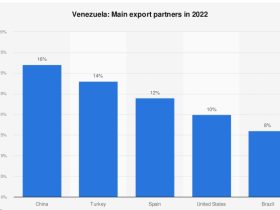
Brokerage Companies in Yemen
Brokerage companies in Yemen play a vital role in facilitating trade, financial transactions, and real estate deals. The country’s brokerage sector includes firms specializing in stock trading, real estate, insurance, and general trade facilitation. However, due to Yemen’s ongoing economic and political instability, the brokerage industry faces significant challenges, including limited foreign investment, currency fluctuations, and regulatory constraints.
Types of Brokerage Companies in Yemen
1. Stock and Financial Brokerage
Yemen’s financial market is underdeveloped compared to other countries, and there is no official stock exchange. However, some financial brokerage firms operate informally, assisting businesses and individuals in securing investment opportunities or facilitating transactions in foreign markets.
International financial service providers such as banks and money transfer agencies also offer brokerage-like services, especially in foreign exchange transactions.
2. Real Estate Brokerage
Real estate brokerage is one of the most active segments in Yemen’s brokerage industry. Agents and firms help buyers and sellers navigate property transactions, including land purchases, rental agreements, and commercial real estate deals.
The demand for real estate services has fluctuated due to displacement, economic uncertainty, and changing property values in cities like Sana’a, Aden, and Taiz.
3. Insurance Brokerage
Insurance brokerage firms assist clients in obtaining coverage from local and international insurance providers.
Due to political instability and security concerns, demand for business, health, and vehicle insurance has increased, making brokers essential in connecting clients with appropriate policies.
4. Trade and Import/Export Brokerage
Yemen relies heavily on imports for essential goods, including food, medicine, and fuel. Brokerage firms specializing in trade facilitation help businesses navigate import regulations, customs clearance, and supply chain logistics.
Some brokerage companies work with international suppliers to secure goods and handle transactions in a complex trade environment affected by sanctions and economic restrictions.
Challenges Facing Brokerage Firms in Yemen
Economic Instability: The ongoing conflict has weakened Yemen’s economy, making investment and financial transactions risky.
Regulatory Issues: The absence of a strong regulatory framework limits transparency in brokerage services.
Currency Fluctuations: The depreciation of the Yemeni rial affects the pricing and profitability of brokerage services.
Limited Foreign Investment: Political instability discourages international brokerage firms from entering the Yemeni market.
Conclusion
Despite economic and political challenges, brokerage companies in Yemen continue to play a crucial role in trade, real estate, and financial services. However, improvements in economic stability, regulatory oversight, and financial infrastructure are necessary to enhance the efficiency and reliability of Yemen’s brokerage sector.



Leave a Reply